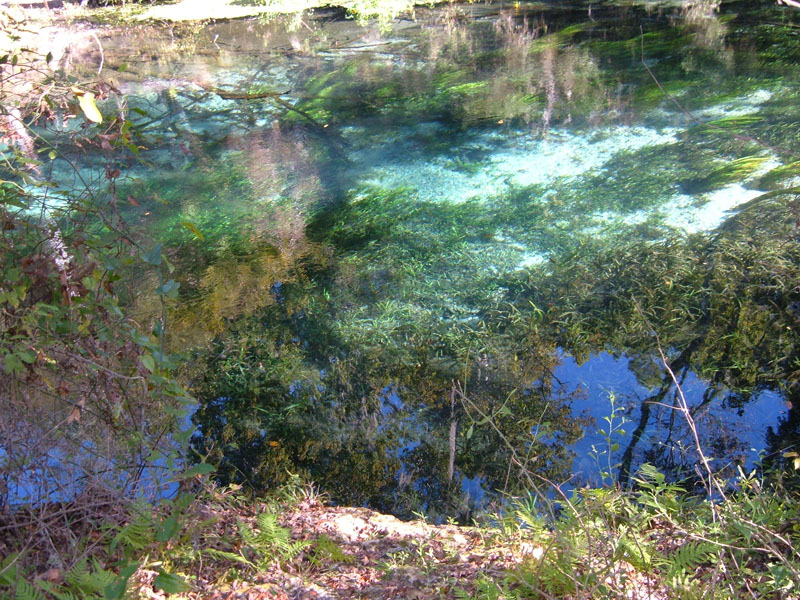Mr. Robert (Rob) Williams, who is a lawyer who sits on the Board of Directors for the Howard T. Odum Florida Springs Institute and is affiliated with the Center for Earth Jurisprudence at Barry University Law School in Orlando, had this (below) to say after reading the article entitled “GRU Might Challenge Protections for Lower Santa Fe, Ichetucknee” on the front page of The Gainesville Sun on December 8, 2013.
Note this article calls into serious question Florida’s preparedness to meet the water needs of our children and grandchildren.
**
My take away from this article is that there is no “Plan B” when we run out of ground water.
The underlying assumption of the Water Resource Law has been that when the minimum flow constraint is reached, the water management will develop alternative water supplies to meet additional demand—this is what I am referring to as Plan B.
All is well, at least in the districts’ view, as long as the minimum flow limit lies in the future—permits continue to be given out fueling more growth. However, as the minimum flows begin to be approached, the districts’ first strategy is to engage in something that is the equivalent of climate-change denial—”the declines are not anthropogenic but simply reflect a temporary decline in rainfall”—”more studies, preferably long-tem studies” are needed to “get the science right”—”our models need to be recalibrated,” etc. When the truth can no longer be denied, the districts simply lower the MFL to meet the new realities as was done recently with the Keystone Lakes.
The reason the districts do this is that the powerful interests to whom they are beholden—big ag, big utilities, development interests—will never, ever give up their cheap ground water when alternative sources will cost them 10 times as much. They and their army of lawyers will challenge any restrictions on their access to ground water. If they think, as the article suggests, that alternative supplies could cost them as much as $1 billion, spending a few million dollars on a legal challenge is a no-brainer.
The springs are a bump in the road for the growth-at-any-cost interests. The public will be upset to lose their springs, but once the springs are gone, there are probably a couple of more decades of cheap groundwater available before the party is over. None of the regulators who are in power now will be around to face the music. I think for the districts and the special interests, the springs are a public relations problem to be managed. Therefore we can expect more “Springs Initiatives” and funding for special projects to assuage public concerns. However, these efforts will not arrest the decline in spring flows. Eventually, the springs will be so degraded that the districts will be able to make the case that it is no longer economically feasible to restore them to their historic state.
That is the scenario I see, if we do nothing.
But enough worrying about what the other side plans to do—what is important is what we plan to do about it!

Photo by Lucinda Faulkner Merritt
